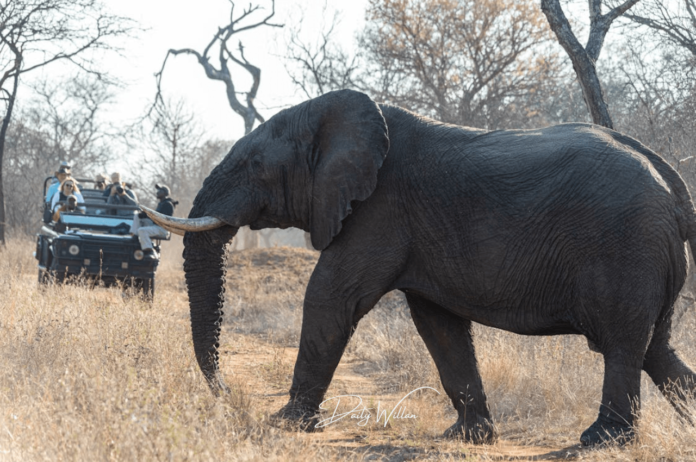If you are planning the visit the tropics and travelling the African jungle, then you are in for a treat. Exploring the African jungle promises an unforgettable adventure filled with wildlife, lush landscapes, and cultural experiences.
I have been in Africa my whole life. Still every time I travel a different country or visit different parts of my country I am amazed by the beauty and splendour that is still unexplored.
Coming to the african jungle can be a source of relaxation, resetting, inward thinking and ultimately an experience like no other. There is mixture of activities and exciting explorations to be done.
To make the most of your journey, thorough preparation is key. Here’s a comprehensive guide to help you get ready for your expedition.
Why Africa Jungle is a Great Tour Destination
Africa is a continent of unparalleled diversity and beauty, making it an exceptional tour destination. Here are some reasons why Africa should be at the top of your travel list:
- Rich Wildlife: Africa is home to an incredible array of wildlife, from the Big Five (lion, leopard, elephant, rhino, and buffalo) to unique species like the mountain gorilla and African wild dog. Safari experiences in countries like Kenya, Tanzania, and South Africa offer close encounters with these magnificent animals in their natural habitats.
- Stunning Landscapes: The continent boasts a variety of landscapes, from the vast savannas of the Serengeti to the lush rainforests of the Congo Basin, and the breathtaking deserts of Namibia. Each region offers its own unique scenery and adventure opportunities.
- Cultural Richness: Africa is a tapestry of cultures, languages, and traditions. Visiting different countries allows you to experience diverse cultural practices, like the Maasai warriors of Kenya. Engaging with local communities provides an appreciation of the continent’s heritage.
- Adventure Opportunities: Whether it’s trekking to see mountain gorillas in Uganda, climbing Mount Kilimanjaro in Tanzania, or exploring the dunes of the Namib Desert, Africa is a playground for adventure enthusiasts.
- Beautiful Beaches: Africa’s coastline offers some of the world’s most beautiful beaches. From the white sands of Zanzibar to the shores of Mauritius, where you can relax and enjoy the warm waters of the Indian Ocean.
- Historical Sites: The continent is rich in history, with ancient sites like the Pyramids of Giza in Egypt, the rock-hewn churches of Lalibela in Ethiopia, and the Great Zimbabwe ruins. Exploring these historical landmarks provides a glimpse into Africa’s fascinating past.
- Hospitality: Africans are known for their warm hospitality and welcoming nature. Visitors often find themselves embraced by the friendliness and generosity of the local people, making their travel experiences even more memorable.
1. Research On Preferred Experience
Africa is a large continent, with 56 countries and over 1000 cultures and languages. So travelling to Africa is not a thing, you can travel to some regions and visit a few cultures. Travelling the entire Africa would be a very long first-time tour.
Before embarking on your journey, decide which African jungle region you want to explore. Whether it’s the dense forests of the Congo Basin, the Bwindi Impenetrable Forest in Uganda, or the lush landscapes of Kenya, each destination offers unique attractions and experiences. For instance, Kenya’s Aberdare National Park and Kakamega Forest are excellent choices for jungle treks, with abundant wildlife and stunning scenery.
Choose Your Destination: Africa’s jungles are vast and varied. Decide whether you want to explore the Congo Basin, Uganda’s Bwindi Impenetrable Forest, or another jungle region. Each destination offers unique flora, fauna, and cultural experiences.
Acquire Travel Permits: Some jungle areas require special permits for entry, especially for activities like gorilla trekking. Apply for these permits ahead of time to avoid disappointment.
2. Pick a Good Time for The Safari
As mentioned earlier, Africa is mostly a tropical climate region. Thus, different times of the year will have different experiences. Also, some safaris are better at particular times of the year.
For example, any time you visit Kenya is not guaranteed that you will see the wild beast migration. You cannot take a hike in the great Mt.Kenya or Mt, Kilimanjaro during the rainy seasons. Some animals such as elephants also migrate depending on seasons.

- Choose the right time: If you have a particular thing you want in mind, choose the most suitable time to visit.
3. Get Vaccinated
The largest part of Africa is made up of a tropical climate which is home to many bugs and tropical diseases. For locals, this is normal and they are used to it. If you are visiting from outside, you have to get your shots. Besides you will not be allowed to travel unless you are vaccinated.
Health should be a top priority. Consult with your doctor about necessary vaccinations and medications well in advance. Common vaccinations include yellow fever, typhoid, hepatitis A and B, and malaria prophylaxis. Carry your vaccination certificate, as some countries require it for entry.
Do not forget to bring any personal medications you may need during your trip. Do not risk getting stuck in the savannah without your medication.
4. Pack Essentials Items For The Safari
Packing the right clothing is crucial for comfort and protection in the African jungle. Opt for lightweight, breathable fabrics that dry quickly. Long-sleeved shirts and long pants are essential to protect against insects and the sun.
Equip yourself with the necessary gear for a successful jungle expedition. A high-quality backpack with a rain cover will keep your belongings dry.
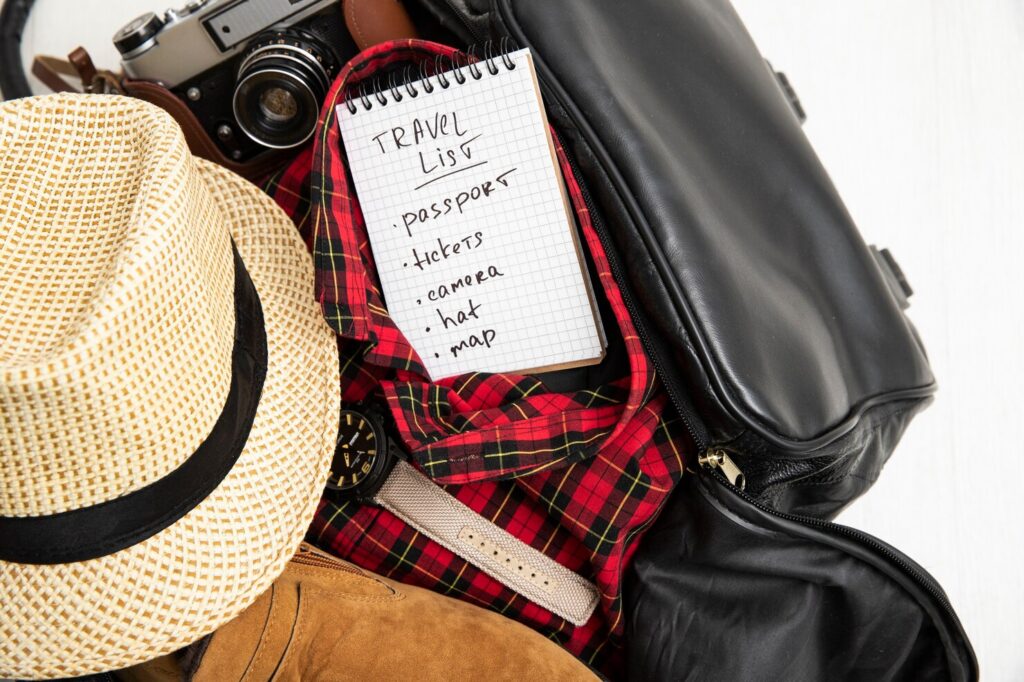
Clothing:
- Lightweight, breathable fabrics that dry quickly.
- Long-sleeved shirts and long pants to protect against insects and the sun.
- A waterproof jacket for unexpected rain showers.
- Comfortable, durable hiking boots and moisture-wicking socks.
Gear:
- A high-quality backpack with a rain cover.
- Binoculars for wildlife viewing.
- A good camera with extra batteries and memory cards.
- A headlamp or flashlight with spare batteries.
- A reusable water bottle and water purification tablets.
Health and Safety:
- A first aid kit with essentials like bandages, antiseptic, and medications.
- Insect repellent with DEET.
- Sunscreen and a wide-brimmed hat.
- Hand sanitiser and antibacterial wipes.
5. Learn a Few Health and Safety Tips
The African jungle can be very unkind the very first time. The savannah climate is a mixture of humid air and hot scorching sun. You will be spending most of your time under the bushes and the scorching sun. With both of these comes a lot of dangers, from the wildlife, bugs and nature itself.
Here are a few tips:
- Stay Hydrated and Eat Wisely: Drink plenty of water and avoid tap water. Stick to bottled or purified water. Be cautious with street food and opt for freshly cooked meals.
- Avoid local foods: If you are not used to new foods, proceed cautiously. Eat in moderation and avoid street foods.
- Take anti-malarial medicine: Just to be on the safe side if you have to stay for long.
- Avoid Wildlife Hazards: Admire animals from a safe distance. Do not antagonize animals, they are not pets. Do not feed wildlife or leave food out, as it can attract animals to campsites.
- Get enough rest: Rest can do wonders for your body, especially when you are in a strange land.
- Know the Terrain: Be aware of the jungle’s layout and familiarize yourself with any potential hazards, such as poisonous plants or dangerous animals.
6. Plan For Emergencies
In case of emergencies, carry a satellite phone or ensure you have a reliable means of communication. Keep emergency numbers handy and inform someone of your itinerary. Establish a check-in schedule to ensure someone knows your whereabouts.
- Carry an emergency medical kit: To be on the safe side always have a medical kit. Most tour guides and reserve lodges will have these but it does not hurt to have yours.
- Stay Connected: Carry a satellite phone or ensure you have a reliable means of communication. Keep emergency numbers handy.
- Have an Emergency Plan: Inform someone of your itinerary and establish a check-in schedule. Know the location of the nearest medical facilities.
7. Learn Cultural Etiquette
Africa is diverse. With diverse cultures, languages, religions and mannerisms. You do not have to learn every single one. Most countries in Africa will speak French, English or Swahili. If you do not feel confident you can find a guide to help you around.
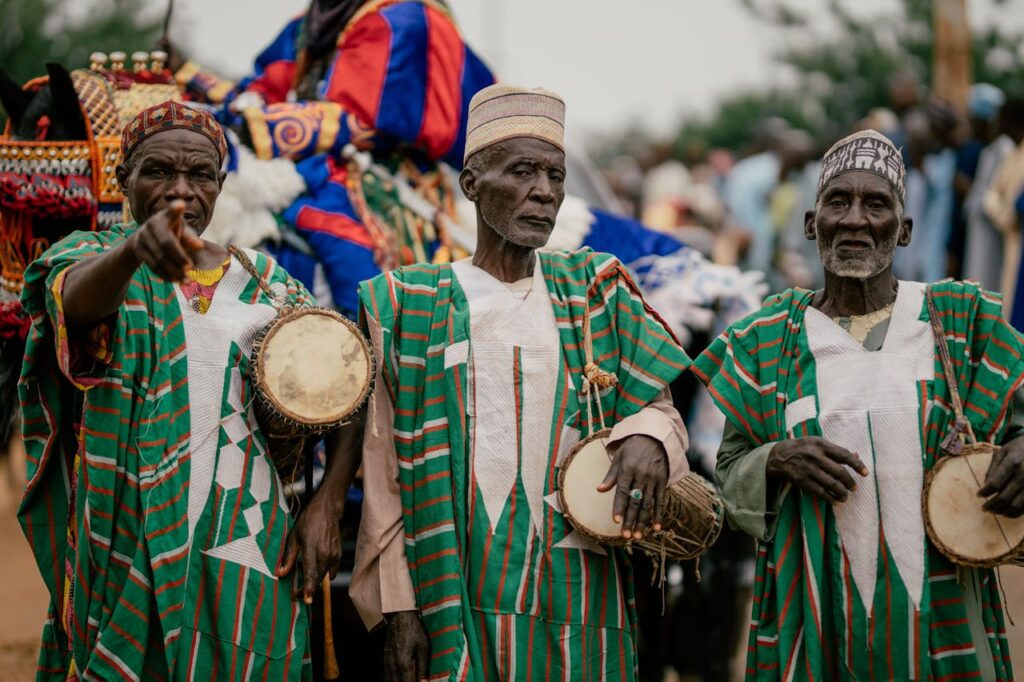
Here is a list of adventure guides to consider:
Be respectful. Africans are very welcoming so do not be rude. Learn and adapt.
- Engage Respectfully with Locals: Learn basic phrases in the local language and respect cultural practices. Always ask permission before taking photos of people.
8. Be Environmental Cautious
The African jungle is made up of a very diverse ecosystem. From the ants to the birds to the elephants felling down the trees, they all depend on each other. To make sure that the natural habitat of these animals is not destroyed, measures are put into place to conserve these lands.
As a tourist maintain them in the same spirit.
- Eco-Friendly Practices: Leave no trace. Carry out all trash, avoid using single-use plastics, and stick to designated trails to minimize environmental impact.
9. Prepare in Advance for the Safari
Now that you have all your plans, your vaccination and money set. It’s time to plan for the safari on time. Make a good itinerary and plan how you want to use your time. You are using money after all, so make the best of it.
Have a checklist of items, events and places that you want to visit.
Enjoy
10. Final Preparations
- Check Weather Conditions: Understand the climate of your destination and pack accordingly. Jungle weather can be unpredictable, so be prepared for sudden changes.
- Money Matters: Carry some local currency and have a backup in case of emergencies. Notify your bank of your travel plans to avoid issues with your cards.
- Insurance: Purchase comprehensive travel insurance that covers medical emergencies, trip cancellations, and lost belongings.
Favorite Places to Visit in Kenya
Masai Mara National Reserve
The Masai Mara is world-famous for the Great Migration, where millions of wildebeest and zebras thunder across the plains between July and October. It’s a natural spectacle. Plus, the Mara is one of the best places to spot the Big Five in their natural habitat.
Amboseli National Park
Nestled at the foot of Mount Kilimanjaro, Amboseli offers some of the most iconic views in Africa. Picture this: elephants moving gracefully across the plains with the snow-capped peak of Kilimanjaro in the background. A scene straight out of a dream or a high-end nature documentary.
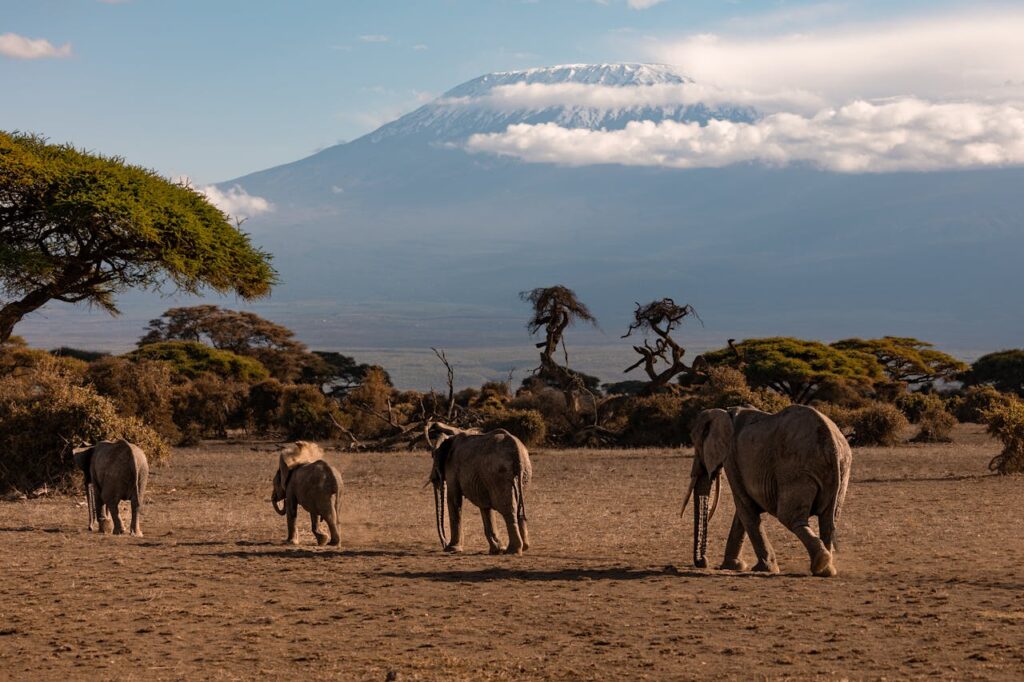
Lake Nakuru National Park
Lake Nakuru is a bird lover’s paradise, with its famous flocks of flamingos turning the lake a vibrant pink. But it’s not just about the birds—black and white rhinos, lions, and leopards also call the park home.
Diani Beach
Diani Beach offers a slice of tropical paradise with its powdery white sand and turquoise waters. Imagine lounging under the swaying palms, sipping on fresh coconut water, and taking dips in the warm Indian Ocean. Activities like snorkelling and kite surfing add to the fun.
Nairobi National Park
A unique blend of urban and wild, Nairobi National Park sits just a short drive from the city’s bustling streets. Picture giraffes nibbling on acacia trees with skyscrapers looming in the distance. You can drive through the park in the morning and be back in the city for lunch, making it a perfect quick escape.
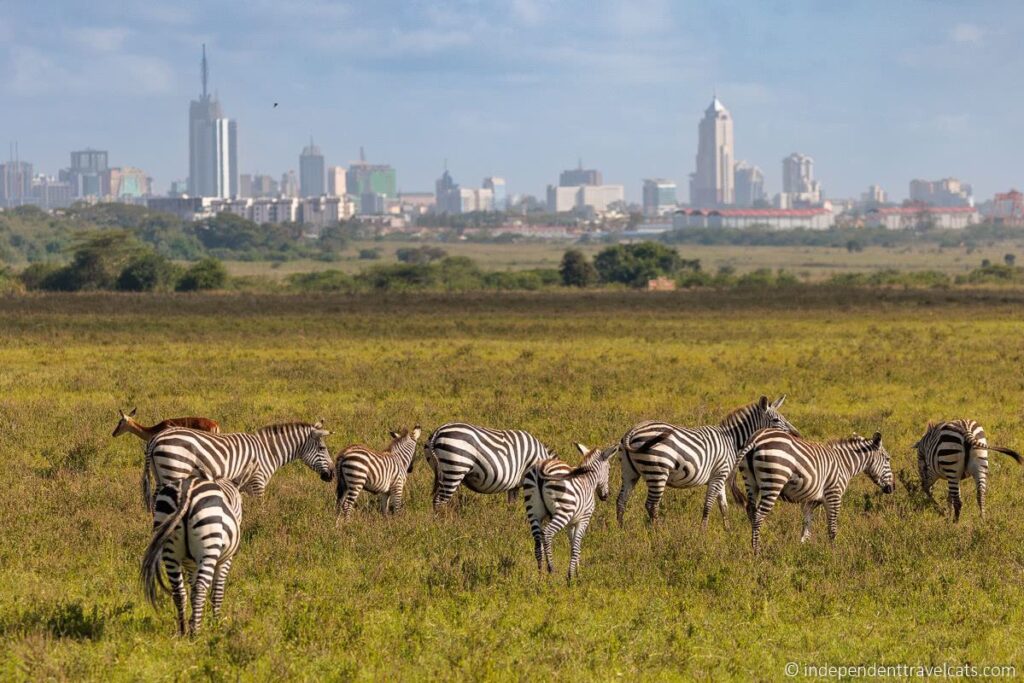
Lamu Island
Lamu Island exudes history and charm, with its narrow winding streets and centuries-old buildings. The island’s relaxed pace and cultural richness offer a chance to step back in time. Wandering through Lamu Town, you’d feel the blend of African, Arab, and Indian influences.
Final Thoughts
Embarking on an African jungle adventure is a unique opportunity to connect with nature and experience the beauty of the continent’s wild landscapes. With careful preparation, you can ensure a safe and memorable journey. There is a lot to learn an experience in Africa.
Happy exploring!







